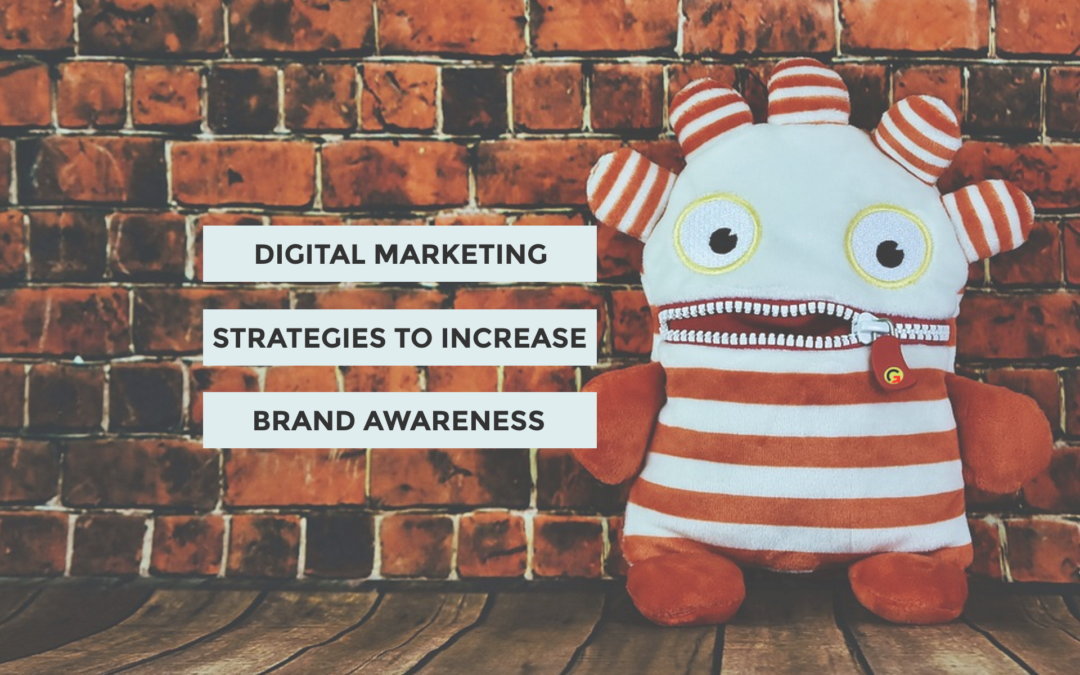Brand awareness is not simply the consumer’s ability to recognize your brand. Brand awareness includes both brand recognition and brand recall.
Brand recognition is the ability of consumer to recognize prior knowledge of your brand when they are asked questions about it, or when they are shown your specific brand. For example, the consumer can clearly differentiate your brand as having being seen earlier or heard of.
Brand recall is the consumer’s ability to recover your brand from their memory when given a signal, such as the product class/category, specific needs satisfied by that category, or presented with a buying scenario. In other words, the consumer should correctly recover your brand from memory when given a clue, or can recall your specific brand when the product category is mentioned.
Brand Awareness
Brand awareness involves recalling not only your startup’s name, logo, and colors, but also the general feelings and emotions associated with your company, information about your products and services, as well as other experiential details.
Building the brand has to do with persistent, consistent messages, visuals, and proof points that emphasize your value.
Marie Hattar, Keysight Technologies
The three most important digital strategies for increasing brand awareness are:
- Search engine exposure
- Strong social media presence
- Targeted email marketing
Search Engine Exposure
When online, search engines are the primary way people find information. According to a study by Forrester, 71% of consumers begin their buying journey by using a search engine to discover new products and services. 74% of surveyed consumers reported using a search engine for consideration and purchasing.
19% of respondents identified search engines as the most influential source in driving their purchase decisions.
Forrester Consumer Technographics
If your intention is to make your brand more visible on the Web, you must have first page exposure in search results; particularly for searches related to your business and industry.
The following are four types of search engine searches that consumers are likely to perform when searching for your startup, products, or services.
- Brand searches include a specific brand or product name. For example, Chevrolet is the brand, and product searches could include Camaro or Corvette.
- Competitor brand searches include your competitors’ brands or products. This is an opportunity for your brand to appear through conquest advertising. For Chevrolet, these terms could include Dodge, Ford, Challenger, or Mustang.
- Category searches include broad search terms that are not product or brand-specific, such as muscle cars, sports cars, or fast cars
- Tangential searches include searches that are related to a given journey, but not in exactly the same category. For instance, if the consumer is searching for tires, a tangential search could be for rims, or a floor jack.
To successfully build brand awareness online, you need a mix of initiatives that include content marketing and display ads.
Organic Search
One of the best ways to improve online brand awareness and increase exposure is through a highly visible marketing channel like organic search. Be forewarned though, ranking well organically takes time and is an extremely competitive process.
Despite the challenges associated with organic search marketing, the value of a page one placement cannot be understated. In fact, this study from Moz reports that approximately 71% of searches resulted in a person clicking on a page one result, with approximately 67% of those clicks going to the first five results.
Paid Search
If your goal is to get your brand out there, paid search is unique in that it can provide brand exposure very quickly. If managed correctly, your ads can appear at the top of page one much faster than organic listings.
Even though the ads are not always clicked, paid search ads boost awareness among consumers who are exposed to them. Having a branded ad appear in category and competitor brand queries will improve brand affinity and recall and increase the propensity for future brand searches.
Strong Social Media Presence
The consensus among Internet marketers is that social media plays an extremely important role in building brand awareness. Unlike a linear ad campaign, social media has the ability to express the deeper meaning behind a brand.
Marketers see social as second only to search regarding impact on brand building strategies.
Forrester Research Inc.
The value of social media is apparent in the opportunities it creates for startups to help consumers better understand their brand. In doing so, brands can build meaningful online relationships that establish a deeper trust with consumers. When a consumer trusts your brand, they are more likely to give you their email address, sign up for a webinar or newsletter, purchase your product, and/or share your marketing content with friends and family.
When participating in social networks, be consistent with your use of graphics, color, style, and language across all channels and platforms. This consistency helps consumers immediately recognize your company, no matter which social media website or app they are using. Also, to garner the most exposure and attention, you must constantly promote your social media profiles online and offline. Print them on your flyers, brochures and business cards, link to them from your website/s, and cross-promote them on your other social media channels.
The more interactions a (social media) Page has, the higher the traffic to its website.
Socialbakers
To encourage interactions on social networks, you must take advantage of every opportunity you have to get the word out and engage with your audience.
Important Brand Character Traits
Forrester Research Inc. believes that to be successful in building brand awareness on social media, you must effectively communicate how your brand is trustworthy, remarkable, unmistakable, and essential.
Trustworthy
Long-lasting relationships require brands to be transparent about the values and principles they share with consumers. Transparency is incredibly important given that communicating honestly about products and services is rated the number one trait consumers want from the brands they follow on social media.
Remarkable
In a world where consumers are overwhelmed with choices, social media users are quick to ignore the ordinary and mundane. To be remarkable you must differentiate yourself from competitors. This is accomplished by disrupting the existing marketplace with something new, and that offers unique value to the consumer.
Unmistakable
The goal is to not be mistaken for anything or anyone else; you must be very distinctive. Brands can build their distinctiveness by setting themselves apart from others in their industry. This is accomplished by defining the unique characteristics the brand possesses, that are not comparable with any competitors.
Essential
Essential is defined as a basic thing that you cannot live without, is extremely important or necessary. An essential brand defines itself by what is irreplaceable about their product or service, particularly in terms of value, function, and/or attributes.
Email Marketing
Building strong, positive relationships with your email list is one of the most effective marketing strategies for increasing sales performance and generating brand awareness. Email marketing has proven to be very effective in welcoming subscribers, nurturing relationships, building trust, and encouraging engagement.
When it comes to helping your business acquire new customers, email is nearly forty times more effective than Facebook and Twitter combined.
McKinsey
Types of Marketing Emails
There are four different types of marketing emails you can send to your subscribers:
- Newsletter
- Marketing Offer
- Announcement
- Event Invitation
The type of marketing email you choose will depend on the content and purpose of your message. In this instance, our primary focus is generating brand awareness.
Newsletters
Email newsletters are a regularly distributed marketing campaign that (generally) focuses on one main topic of interest. This type of marketing email keeps your business and your products/services at the forefront of consumers’ minds, and gives the recipient a compelling reason to visit/revisit your website.
Marketing Offers
A marketing offer email has the single goal of driving a direct response from the recipient. This type of email (usually) presents a product or discount offer, and includes a direct call to action for recipients to click-through to your website and make a purchase.
TIP: Email marketing can drive even more conversions if a coupon is included in the email content [Remarkety].
Announcements
An announcement email is ideal for keeping prospective and existing customers up-to-date on your latest products, services, and/or features. Although sharing information and driving people back to your webpage are primary campaign goals, announcement emails have the added benefit of reinforcing awareness of your brand. From the email’s imagery to the tone of the text, your audience is being exposed to your company’s branding.
Event Invitations
Event invitation emails are intended to increase awareness of your event, and encourage people to attend. Make every effort to ensure your brand is represented accurately and consistently throughout the email. The more branded you can make the invitation email, the more memorable it will be.
Build Trust And Authority
When you send out an email, it is a gentle reminder to your audience that you exist. These emails should be sent out frequently, showcase what you have achieved, and communicate how well you know your industry. For example, offer valuable tips, industry-specific information, and expert advice. This approach will go a long way to establish your credibility and build authority.
The key to developing brand awareness through email marketing lies with consistency – both in the look and feel of your messages and in the frequency.
When sending emails, repeatedly provide solution-focused content, personalization, and highly optimised campaigns – each with its own specific call-to-action (CTA). For example, if your email recipient is learning about your brand, direct them to your website. Adding CTAs to your email where appropriate will help with conversions.
Email marketing ROI is four times higher than any other digital marketing channel.
eMarketer
If you are not employing your email marketing strategy to its full potential, it is time to get to work and begin to think about how to keep those customers coming back. By offering solution-focused content, customers will not only remain engaged with your brand, but they will also be eagerly awaiting your next email.
Search, Social, and Email Build Brand Awareness
The extent to which a product or service is widely recognized, is dependent upon the quality and quantity of the brand awareness that is generated in search, social media, and email marketing. In the early years of a product’s introduction, brand awareness is particularly important. For many, it is considered to be the primary marketing goal during this pivotal time period.
Startups who understand and appreciate the value of first page search engine exposure, a strong social media presence, and targeted email marketing, have the greatest chance of successfully increasing awareness for their brand.
The payoff for delivering consistent, transparent, and branded content to your audience is simple. Startups that maintain a high level of brand awareness will generate more revenue and command a greater market share. Furthermore, a higher level of brand awareness typically serves as an economic moat around your brand. This prevents competitors from gaining additional market share at your expense.






